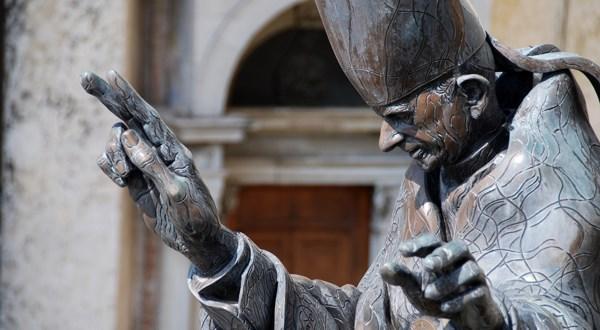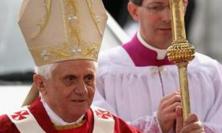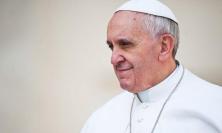26 March is the fiftieth anniversary of the promulgation in 1967 of Populorum Progressio, Pope Paul VI’s encyclical ‘On the development of peoples’. It is a text that still deserves our attention, says Emilio Travieso SJ, in light of its content and context, and particularly its approach to teaching.
Enduring relevance
Populorum Progressio was a call to all people of good will to be scandalised by poverty and inequality in the world. The encyclical’s core message was that the Church cannot be indifferent to this reality, and that those who ignore it do so at their own risk. Fifty years after its promulgation, considering that extreme poverty has not gone away and inequality has become even more grotesque, the papal wake-up call still rings loud and clear.
Blessed Paul VI’s encyclical has also proven its lasting relevance in other ways.
With Populorum Progressio, the scope of the Church’s reflection on social issues became truly universal: it not only looks beyond industrialised countries (which were the original concern of the tradition of Catholic Social Teaching inaugurated by Leo XIII in 1891 with Rerum Novarum), but also notices the connections between poverty in some areas of the world and wealth in others.
The 1967 encyclical’s vision of development as a holistic process centred on the human being, and not merely on economic growth, was an early tributary to a current of thought that has become an international consensus. The double insistence on ‘every person and the entire person’ has since become a hallmark of Catholic Social Teaching. The encyclical also contributed to the theoretical development of the Church’s position on specific issues, such as the legitimate – but relative and contingent – role of private property.
Promulgated in a decade full of change, both for the Church and the wider world, Populorum Progressio also contributed to new models of praxis. The pope encouraged Catholics to engage in development work as a form of Christian apostolate, supported by the newly formed Pontifical Council for Justice and Peace. This inspired many faith communities around the world to found hundreds of NGOs that serve and advocate on behalf of migrants and refugees; cooperatives and technical schools that help people find a way out of poverty; and other initiatives related to health care and international solidarity. Social service, along with the struggle for social justice and human rights, have increasingly become an integral part of Catholic mission, not just an add-on to make traditional evangelisation efforts more palatable, or something specific to a particular charism.
For both its vision and its practical impact, Populorum Progressio has rightly been recognised by subsequent popes as a major social encyclical. Indeed, it is the only encyclical other than Rerum Novarum which has been commemorated by new encyclicals: Pope Saint John Paul II promulgated Sollicitudo Rei Socialis to mark Populorum Progressio’s twentieth anniversary in 1987, and when another twenty years had passed, Benedict XVI continued reflecting on its intuitions in Caritas in Veritate. (The latter’s publication was delayed until 2009 in order to include the implications of the global financial crisis in those intervening years.)
Now fifty years on, the encyclical still deserves our attention, both in the form of a detailed exegesis of the text in its historical context and a debate about the enduring issues it raises. Important contributions of both types have been made in light of the fiftieth anniversary. [1] Here, I want to offer my own particular twist on the legacy of Populorum Progressio, based on the critiques levelled against it.
Critical reception
Not everybody likes Populorum Progressio. Some are dissatisfied because of what is not in the encyclical, namely any discussion of issues such as ecology (which John Paul II, Benedict XVI and Francis have since addressed) and gender equality (on which the Church still has a long way to go).
However, others have raised objections to what is in the text. Many have pointed out that the solutions to global poverty proposed by the pope leave little room for the agency of the poor, naively expecting the rich to have a massive change of heart and mistakenly trusting in the effectiveness of ‘aid’ to solve ills that are rooted in injustice. The pope’s prejudice against non-Western cultures, expressed in ambiguous phrases throughout the encyclical, has been cited as a factor that conditions his prescriptions for Western saviours.
Others still – especially those who disagree with the pope’s specific positions[2] – claim that the pope should not take positions on concrete policy questions in the first place. In this view, the function of an encyclical is for the Church simply to elaborate on its vision of human flourishing in light of current events but without stepping into the fray of debatable issues. Since this last critique is a fundamental one and one that is still levelled at papal documents – as it was against Pope Francis’ Laudato si’, for example – it is the one that I want to explore further here.
Should the Church enter the fray?
What does it mean for the Church, as mother and teacher, to take a position on controversial issues at a given time?
On the one hand, as the National Catholic Reporter commented a few days after Populorum Progressio was published:
Everybody is nominally for freedom and against hunger. What makes the encyclical meaningful…is that it specifies some of the concrete and controversial actions that have to be taken to reach the ideal…
In other words, there is no point writing an encyclical to rehash abstract principles. The Church’s mission is to love, and loving involves taking risks. When the Church keeps a ‘safe distance’ from urgent situations that cause enormous suffering, for the sake of protecting its image of always being right, it is more likely to lose credibility.
What gives a mother authority is not that her advice is always right; it is that she loves her children. Knowing this, they can trust that she is giving the best advice she can – based on the best information at her disposal, and based on her children’s best interests. At its core, this love is the eternal truth that the Church is witness to and, insofar as she is faithful, this is the source of our trust in her authority.
But what about the Church as teacher? What gives authority to a teacher? This is where we might well question the way in which the social encyclicals have articulated positions, on policy and otherwise.
Joining the fray requires vulnerability
If Populorum Progressio raised eyebrows for making specific policy recommendations, it was less surprising that the document does not cite the social theory and empirical data that led the pope to his conclusions. In this omission, the encyclical is in line with papal tradition. Encyclicals always cite previous encyclicals and scripture heavily, with further nods to the early Church Fathers. This is a way of demonstrating the continuity of an unbroken tradition (even if it also involves a process in which what isn’t remembered is just as strategic as what is). Otherwise, the only other references tend to be to a philosopher or two who may have influenced the framing of the encyclical at hand.
We see this in Populorum Progressio. Paul VI – like the popes before and after him – avoids any critical discussion of the social science literature that has guided his understanding of empirical reality, of what is at stake in that reality, and what different sorts of interventions might entail. He includes only two footnotes citing economists, and these are with reference to philosophical points.
The Church’s positions on policy questions cannot be immediately derived from the gospel. Rather, they are informed by an interpretation of empirical reality, an interpretation which will always be subject to the shaping and colouring of a particular theoretical ‘filter,’ as well as the messy, always contingent and limited inductive process of applied social science methods. Without acknowledging the theories and empirical data with which he is working, it can seem as if a pope is claiming privileged knowledge, and asking us to extend our trust in his moral authority to his scientific authority (i.e., ‘he means well, therefore he must know what he is talking about’). To be sure, in the later encyclical, Octogesima Adveniens, Paul VI will admit that the social and natural sciences are ‘indispensable’ helpers in the Church’s moral discernment. Yet, in practice the popes have kept these indispensable servants invisible.
The rationale for doing so might be to avoid encyclicals being seen as anything less than eternally valid Magisterium, a fresh expression of perennial truths. But this is to do the gospel a disservice. In seeking to protect the gospel message from their own human limitations while trying to apply it to a changing reality, the popes deny the good news of the incarnation: God comes close and becomes intelligible, and saves us, precisely in the form of a historically contingent human with a limited perspective. The eternal truth that the encyclicals faithfully announce in new circumstances would surely not be marred if it were made clear that this announcement is necessarily made from within a limited, incarnate perspective, with the tools that are available at the time.
Humble progress
In Gaudium et Spes, the Church’s constitution which was published just fifteen months before Populorum Progressio, the Second Vatican Council declared that the Church had a stake in human affairs, and so it would not be afraid to take risks for the sake of love. It also understood that the Church has something to offer humanity at large, but only from the position of civil society and with the recognition that she is not the only one with something to offer.
Teaching as a fellow searcher, as opposed to a fount of authoritative and unquestionable knowledge, is increasingly coming to be a feature of the Church’s identity. A more interactive pedagogy, a dialogue in which all participants are recognised as both learners and teachers leads to a way of communicating the gospel’s message of love that has as much to do with the method of teaching as with the content. Pope Francis has made some interesting innovations in this direction. In Laudato si’, he cites not only scripture and previous popes, but also bishops’ conferences from around the world, along with an Orthodox patriarch and a Muslim Sufi. He also openly discusses a philosopher who has influenced him, Romano Guardini, at some length.
This gesture of humility – being open to learning from others, and acknowledging them – at once embraces the Magisterium’s incarnate nature and exposes it to criticism. For example, a colleague recently pointed out to me that Laudato si’ cites only men, and no women. This sort of critical reading, enabled by the pope’s greater transparency, is precisely what can cure the Magisterium of its blind spots and keep it honest, so that it can continue to develop faithfully, learning about its own limitations and letting itself be enriched by new perspectives.
If only, then, Pope Francis had taken the same approach to referencing the natural and social science material that led him to strong positions on environmental policy. To be sure, he made it known outside the encyclical that his positions are informed by the Pontifical Academy of Sciences, which includes several Nobel Laureates. Also, he makes a point of acknowledging that there are a variety of legitimate opinions, based on available evidence and plural theoretical perspectives, on both the objective environmental problems and the best ways to solve them. Yet, he does not break the social encyclical genre’s habit of failing to indicate how exactly he arrived at his conclusions, as far as these dimensions are concerned.
Creativity at the margins
I have talked about Catholic Social Teaching in light of the Church as mater et magistra. As a mother, the Church cannot stand by without intervening when the joys and sufferings of her children are at stake. As a teacher, she would do well to update her academic style and renew her pedagogy. Joining the fray of controversial debates not only with loving concern, but also with real humility, and with as much rigour and transparency as can be expected of any policy advisor, would make the Church a more credible witness.
I also want to say a word on another traditional image of the Church. Whereas the Church exercises her role as mother and teacher through the hierarchy, she also exists as the wife of Christ. The latter has a direct, mystical relationship with her divine lover.[3] The former, in Populorum Progressio, reminds the rich of Jesus’s call to serve the poor. The latter remains with Jesus where he prefers to be: among the poor and the outcast, far from centres of power.
The Church that is in love with Jesus and adopts his perspective from the peripheries, is the Church of surprises.[4] It is the Latin American Church, for example, that received Populorum Progressio with respect, and then creatively adapted its social concern to a more bottom-up, liberationist approach.
Ultimately, there is only one Church. The key to communion is authentic dialogue, not only between the hierarchy and the people at the edges, but also with people beyond its borders. In this light, it is heartening that in preparing Laudato si’, the current pope consulted not only experts, but also social movements from around the globe.
The Church’s authority to teach hinges on its ability to listen, and to engage as a humble servant in the common search for a more just world.
Emilio Travieso SJ is a studying for a DPhil in International Development at the University of Oxford.
[1] See Populorum Progression: 50 Years (Journal of Moral Theology: Vol 6, No. 1, Jan 2017) for examples of commentary on the encyclical’s fiftieth anniversary: http://cdm17146.contentdm.oclc.org/cdm/singleitem/collection/JMT/id/20/rec/13
[2] A recent article in Crisis Magazine by Samuel Gregg, author of For God and Profit, is one example.
[3] This interpretation comes from a feminist theologian, whose name I do not know, cited by Ricardo Antoncich SJ in the context of Spiritual Exercises (352).
[4] Elizondo, Virgilio (2009) Jesus the Galilean Jew in Mestizo Theology. Theological Studies 70: 262-280.






